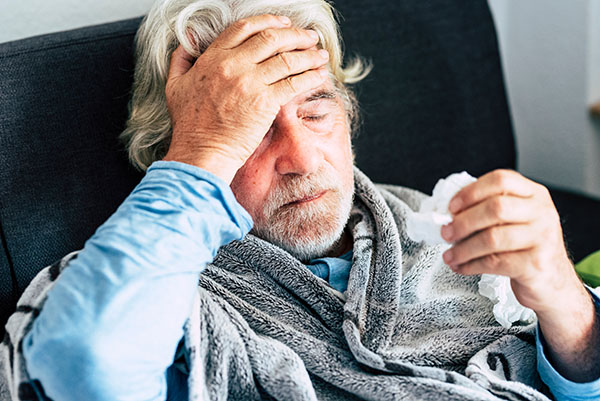7 Tips From a Primary Care Physician to Ease Migraine Pain

If you constantly deal with migraine pains, this article consists of tips from a primary care physician for getting relief. Migraines happen, even after you have taken preventive medications and avoided the common triggers. The pounding pain, sensitivity to light and sound and nausea can make this condition hard to deal with.
The tips listed below will help prevent the migraines or, at least, ease the severity and symptoms.
Seven tips from a primary care physician
1. Rest in a dark, quiet room
Most people suffering from migraine often complain about extra sensitivity to sound and light. Find a quiet place in the house, turn off the light, close the curtains and rest. You do not even have to sleep, but the chemicals produced in the brain during sleep can help with pain.
2. Use a hot or cold compress
Place the compress over your forehead or the back of your neck. Many people prefer ice because it has a numbing effect, according to the primary care physician. When you apply a cold compress, it stops the migraine and stimulates the nerve endings around the compress.
A warm compress, on the other hand, can help ease muscle tension. A warm bath or shower may help.
3. Mindful meditation
Create time to sit in the moment. Focus on your breathing. According to the American Migraine Foundation, this art of mindful meditation can sometimes ease physical pain. Some researchers published a review in cephalalgia back in 2016, stating that the results achievable with mindfulness is comparable to mediation in patients dealing with chronic migraines. Mindfulness essentially works as a distraction to ease the pain.
4. Lavender
The aroma of lavender can help induce relaxation. You can drink the lavender tea, or dispense the oil via a diffuser or inhale directly. Lavender is available in health food markets and pharmacies. Lavender has been proven over time to help alleviate migraines and its symptoms.
5. Stay hydrated
Dehydration can trigger migraines. Therefore, drinking water can help replenish body fluids and electrolytes. Consider adding a slice of lime or lemon to improve the taste of the water and drink more. Reduce your caffeine intake because it can cause dehydration.
6. Massage your temples
According to the American Academy of Family Physicians (AAFP), massage can calm your muscles and help you relax. The effects of the massage largely depend on your physical condition and personal preference. Some people are often extremely sensitive to the touch when dealing with a migraine, so a massage may end up worsening the situation.
Some people may be able to simply relax and improve circulation by rubbing their temples in a circular motion.
7. Exercise
This may appear counterintuitive, but a brisk walk may help improve your migraine pain. During aerobic exercise, your blood flow improves and stress is relieved, according to the AAFP. Exercises can improve the pleasant hormones of the body and make you feel better. Yoga and Tai chi are excellent examples of low-impact exercises you can consider for migraine pain.
Final Note
When you combine the tips listed above with medications, you may get substantial relief from migraine pain. If they do not help, however, you may need to reach out to your primary care physician for treatment.
Request an appointment here: https://millenniummedicalcare.com or call Millennium Medical Care at (703) 372-4429 for an appointment in our Fairfax office.
Check out what others are saying about our services on Yelp: Primary Care Physician in Fairfax, VA.
Recent Posts
Having mild common cold symptoms is enough to make you miserable. Severe ones can make your battle with the infection even more taxing. Understanding these severe symptoms can help you work harder to prevent them. Doing so can keep you from going to your local urgent care facility for treatments. If you want to know…
Getting the common cold is hardly an unusual occurrence. This sickness afflicts people of all ages perhaps more than any other health condition. Some people only get minor symptoms that go away within a few days. But other people can suffer significantly with a variety of ailments. It is helpful to understand what causes colds.…
Liver testing helps identify liver inflammation, injury, or reduced liver function before serious complications develop. Both urgent and primary care providers use these blood tests to investigate symptoms, evaluate abnormal findings, and monitor known liver disease or medication effects. Liver testing often includes liver enzymes and proteins that reflect liver-cell injury and the liver's ability…
If you recently had the common cold, you are hardly alone. This is likely the most frequent illness that medical professionals treat and that people deal with. The symptoms can range from minor to severe and everywhere in between. You may recover fully within a couple of days, or the cold may hang on for…


